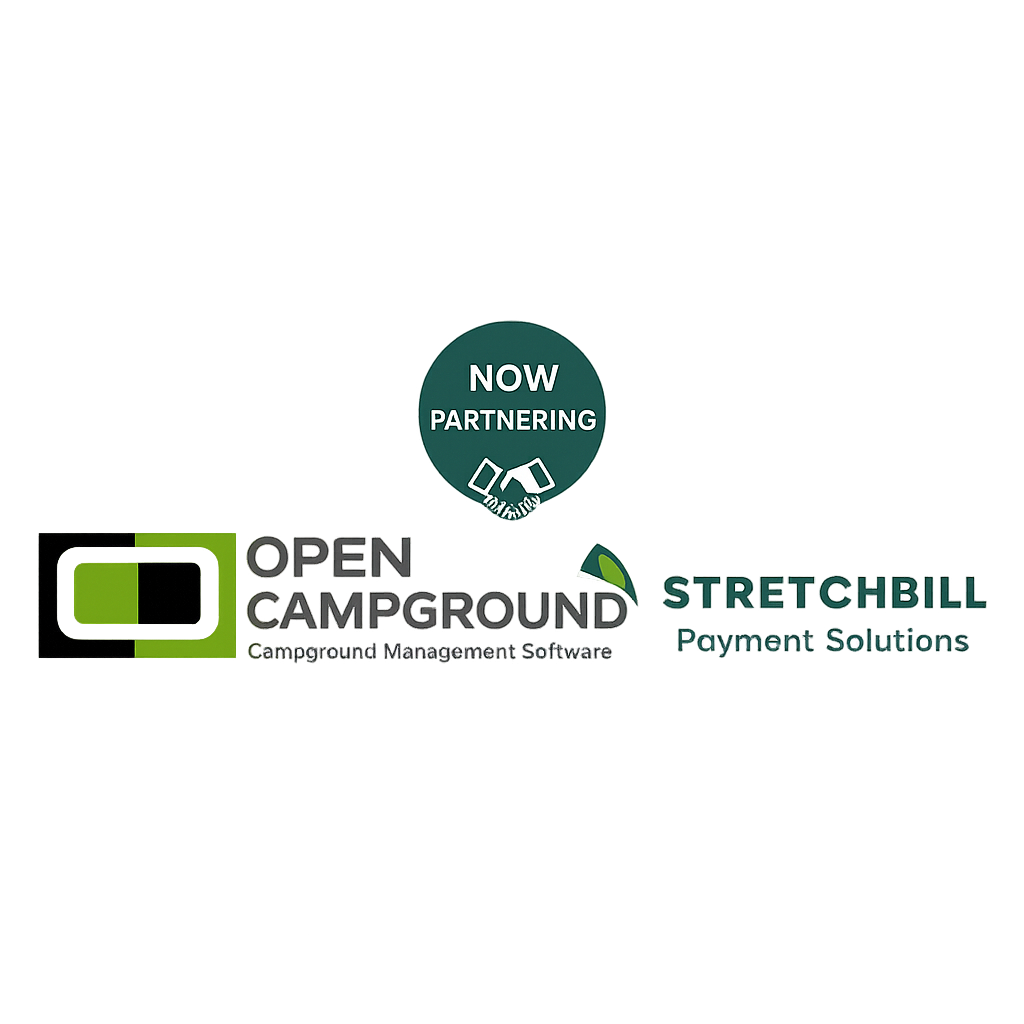OpenCampground yesterday announced an exclusive partnership with StretchBill, a payment platform that allows advance bookings and retail purchases to be split into no-interest installments paid before arrival.
The partnership aims to improve cash flow and guest affordability across U.S. campgrounds and RV parks.
The companies said the agreement will initially target U.S. campgrounds and RV parks, with plans to expand into other outdoor hospitality segments, according to a press release dated August 20.
Unlike Buy Now, Pay Later services, StretchBill operates as a layaway-style system in which guests complete payments before their stay or purchase. According to the release, this approach can help operators attract new customers, reduce cancellations, and provide more predictable revenue streams.

OpenCampground President Brent Parker said the system provides operators with earlier access to revenue.
“The ability to secure full revenue months before a guest arrives is a game-changer for campgrounds and other outdoor hospitality operators,” Parker said in the release.
“StretchBill offers an elegant solution that improves cash flow, increases booking conversions, and enhances guest affordability—all without adding debt.”
Matt Golis, founder and CEO of StretchBill, said the partnership builds on OpenCampground’s existing industry relationships.
“We are excited to bring StretchBill’s platform that makes paying over time easy to the outdoor hospitality industry,” Golis said.
“OpenCampground is an ideal partner with its many relationships with operators in the campground, RV parks, and related businesses.”
The companies cited industry analysis that estimates a $19 billion annual transaction opportunity across U.S. campgrounds, glamping resorts, and adventure travel packages.
They said that in these sectors, guests often book months ahead, but operators typically do not receive final payment until close to arrival. The companies said StretchBill’s installment model accelerates revenue by shifting those payments into earlier installments.
No rollout timeline was included in the announcement.
What It Means For Campground Operators
For private campground owners and operators, the new partnership could affect both revenue timing and guest affordability.
By securing payments in advance, operators may gain steadier cash flow to support operating expenses, staffing, or property upgrades.
The companies also suggested that earlier, structured payments could reduce last-minute cancellations, a common challenge for parks dependent on seasonal business. This may help operators better forecast occupancy and staffing needs.
From the guest perspective, being able to spread out payments without interest could lower the upfront financial barrier to booking longer stays or higher-value accommodations.
For operators, this may support conversions on premium sites or rental units that otherwise require significant deposits.
While the release positioned the model as beneficial to operators, the actual impact will depend on adoption rates, integration with reservation systems, and whether guests embrace the layaway approach.


